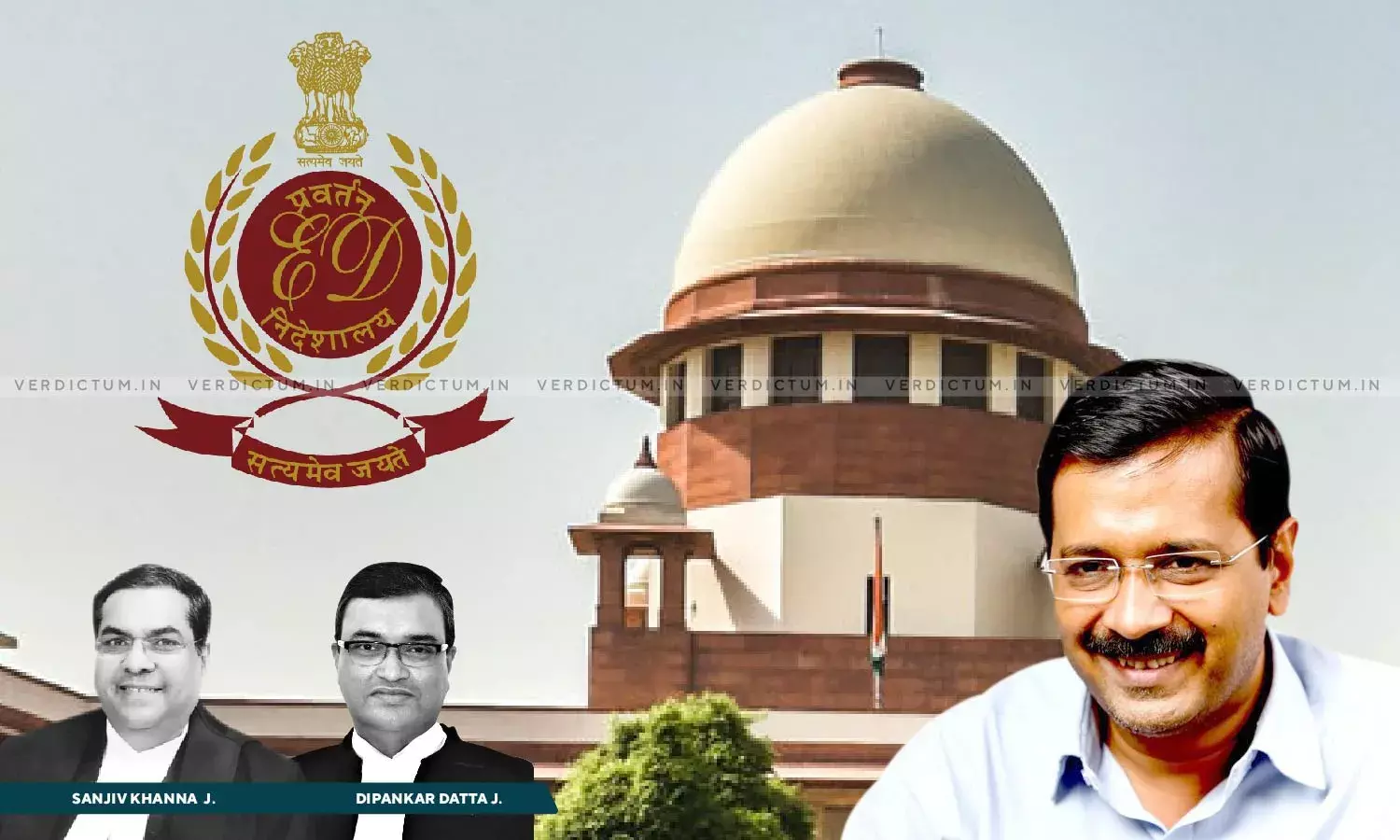Applicability Of Doctrine Of Need & Necessity To Arrest In PMLA Cases: SC Refers 3 Questions Before Larger Bench In Arvind Kejriwal vs ED Case
In a petition challenging his arrest by the Directorate of Enforcement filed by Arvind Kejriwal, the Supreme Court has referred three questions of law on the applicability of the 'doctrine of need & necessity to arrest' for consideration by a larger Bench.
The questions were:
(a) Whether the “need and necessity to arrest” is a separate ground to challenge the order of arrest passed in terms of Section 19(1) of the PML Act?
(b) Whether the “need and necessity to arrest” refers to the satisfaction of formal parameters to arrest and take a person into custody, or it relates to other personal grounds and reasons regarding necessity to arrest a person in the facts and circumstances of the said case?
(c) If questions (a) and (b) are answered in the affirmative, what are the parameters and facts that are to be taken into consideration by the court while examining the question of “need and necessity to arrest”?
The Bench of Justice Sanjiv Khanna and Justice Dipankar Datta referred to and agreed with the ratio in Vijay Madanlal Choudhary and others v. Union of India and others, wherein it was held that the safeguards provided as preconditions in Section 19(1) of the PML Act have to be fulfilled by the designated officer before affecting arrest. The safeguards are of a higher standard. They ensure that the designated officer does not act arbitrarily, and is made accountable for their judgment about the ‘necessity to arrest’ the person alleged to be involved in the offence of money laundering, at the stage before the complaint is filed.
The Court held that the principle of parity or equality under Article 14 of the Constitution cannot be invoked to repeat or multiply irregularities or illegalities. If an advantage or benefit has been wrongly given, another person cannot claim the same advantage as a matter of right due to the initial error or mistake. However, this principle does not apply where multiple courses of action are available to the authorities. The doctrine of need and necessity to arrest may accept this principle. Section 45 of the Prevention of Money Laundering Act gives primacy to the opinion of the Directorate of Enforcement (DoE) regarding bail, and the DoE should act uniformly and consistently, confirming one rule for all.
The Court emphasized the importance of the principle of proportionality, especially when fundamental rights such as the right to life and liberty are involved. Citing the case of Chairman, All India Railway Recruitment Board v. K. Shyam Kumar and a decision by the House of Lords in R v. Secretary of State, the Court noted that proportionality is an appropriate standard of review for human rights issues.
It was said that, "The proportionality test is more precise and sophisticated than other traditional grounds of review. The court is required to assess the balance struck by the decision maker, not merely whether it is within the range of rational or reasonable decisions. Proportionality goes further than the traditional grounds of review as it requires attention to the relative weight according to interest and considerations."
Arvind Kejriwal had appealed against the judgment dated April 9, 2024, by the Delhi High Court's single judge. Kejriwal had filed a Criminal Writ Petition under Articles 226 and 227 of the Indian Constitution and Section 482 of the Code of Criminal Procedure, 1973, challenging his arrest by the Directorate of Enforcement on March 21, 2024. He argued that his arrest violated Section 19 of the Prevention of Money Laundering Act, 2002. He also contested the subsequent proceedings, including the remand order to the custody of the Directorate of Enforcement, issued by the Special Judge on March 22, 2024. The High Court had rejected his petition.
He has been granted interim bail.
Cause Title: Arvind Kejriwal vs Directorate of Enforcement
Click here to read/download the Judgment












